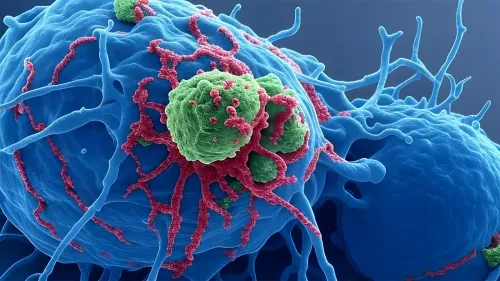New Hope for Childhood Cancer Treatment from Australian Research

Synopsis
Key Takeaways
- New treatment targets sarcoma tumors.
- Engineered immune cells show promise.
- Significant advancement in pediatric cancer therapies.
- Potential application for other cancers.
- Research led by the University of Queensland.
Sydney, Feb 12 (NationPress) Researchers in Australia have introduced a groundbreaking treatment for lethal childhood cancers by utilizing engineered immune cells.
This significant research, published recently, was spearheaded by a group from the University of Queensland (UQ), which has devised a novel therapeutic approach for pediatric sarcomas, according to a report by Xinhua.
Sarcomas are malignancies that arise in the bones and soft tissues, which include muscles, fat, and blood vessels. In children, these tumors often exhibit aggressive growth and can spread rapidly throughout the body, complicating treatment.
The latest study indicates that sarcomas represent 5-10 percent of all cancers in children but are accountable for more fatalities than brain cancer, skin cancer, leukemia, and lymphoma.
The innovative treatment employs engineered immune cells—commonly referred to as killer cells—that have been modified to identify and combat the disease, specifically targeting and eradicating sarcoma tumors.
Wayne Nicholls, a co-author from UQ’s Ian Frazer Centre for Children’s Immunotherapy Research, mentioned that sarcoma is the leading cause of death among individuals aged 10-30, with no advancements in survival rates over the past 40 years.
“Currently, there are virtually no novel therapies available for pediatric solid tumors. This represents a crucial advancement towards a new treatment option for patients,” he stated.
Fernando Guimaraes, Associate Professor at UQ’s Frazer Institute, emphasized that this breakthrough could be life-saving for numerous patients.
“These cancers have very few treatment options. In fact, we have not seen any new therapies in the last four decades,” Guimaraes added.
The treatment may also be beneficial for other challenging diseases, including triple-negative breast cancer, according to the research team. The findings are documented in Clinical and Translational Medicine.










